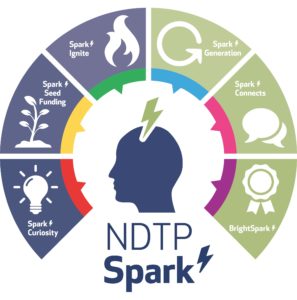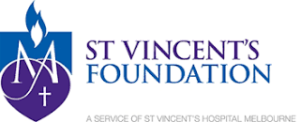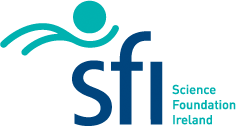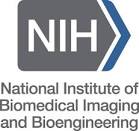Colorectal cancer, also known as bowel cancer, is any cancer that affects the colon or the rectum. Colorectal cancer is the third most common cancer in Europe.
Here at the Centre for Systems Medicine, we have several Principal Investigators working on projects that are focused on Colerectal Cancer: Projects Include
Development of personalised medicine approaches for the clinical application of IAP antagonists in metastatic and high risk early stage colorectal cancer
Colorectal cancer (CRC) has the second highest mortality rate of any cancer in Europe. Globally, there are 1.2 million cases diagnosed each year. For current therapies, the weekly cost per patient can reach €5,000, but benefits to patients are limited. 5-year survival rates have increased only moderately in the past 25 years, indicating a need for novel therapies that target cancer resistance. However, devising new therapies but not knowing which patients will ultimately benefit from these is unsustainably costly. Based on novel diagnostic tools and a substantial body of biomedical, pre-clinical and clinical data generated by the applicant group, this proposal explores the hypothesis that subgroup(s) of colorectal tumours become addicted to inhibitor-of-apoptosis (IAP) proteins, thereby suppressing both apoptosis and immune signalling, and that such subgroup(s) can be effectively treated by novel IAP-targeted therapeutic drugs.
We will identify sub-groups of patients not benefiting from current chemotherapy, examine which subgroup(s) of tumours are re-sensitized by IAP antagonist therapy, and will deliver a new generation of systems-based patient stratification tools for future integration into ‘smart’ clinical trials. Our proposal will deliver new solutions for the personalised therapy of CRC, and addresses these in a systematic, step-wise manner.
PI: Prof. Jochen Prehn: (SFI Investigator Award)
*******************************************************************************
COLOSSUS


COLOSSUS is an EU-funded H2020 project that aims to provide new and more effective ways to classify patients with a specific type of colorectal cancer (microsatellite stable RAS mutant metastatic colorectal cancer or MSS RAS mt mCRC) and to develop better treatments for them. Our ultimate goal is to deliver a personalised medicine approach for patients with MSS RAS mt mCRC that is currently not available.
RCSI is coordinating the COLOSSUS project, and plays a key role across most of the project work packages, in particular WP1 (project management), WP2 (providing tissue samples and analysis) WP4 (multi-omic profiling of MSS RAS mt CRC COLOSSUS cohorts), WP5 (network & pathway modeling of multi ‘omic MSS RAS mt CRC datasets), WP7 (clinical diagnostic assay prototypes), WP8 (testing novel drug combinations), WP9 (dissemination and exploitation) and WP10 (ethics).
COLOSSUS is an EU-funded H2020 project that aims to provide new and more effective ways to classify patients with a specific type of colorectal cancer (microsatellite stable RAS mutant metastatic colorectal cancer or MSS RAS mt mCRC) and to develop better treatments for them. Our ultimate goal is to deliver a personalised medicine approach for patients with MSS RAS mt mCRC that is currently not available.
The COLOSSUS team is composed of cancer researchers and clinicians from across Europe.
Click here for more information
PI’s -Prof. Annette Byrne – Prof. Jochen Prehn-and Dr. Darren O’ Connor
*******************************************************************************

ColoForetell
A Xenopatient Discovery Platform for the integrated Systems based Identification of Predictive Biomarkers for Targeted Therapies in Metastatic Colorectal Cancer
Colorectal cancer is the second leading cause of cancer-related deaths in the developed world. Regorafenib, a newly approved tyrosine kinase inhibitor is active in metastatic colorectal cancer (mCRC) patients for whom no other treatment options exist. Nevertheless, as not all patients respond to treatment, the elucidation of a patient subset most likely to derive clinical benefit is of high priority. Herein, a state of the art mCRC Patient Derived Xenograft (PDX) discovery platform will be established to enable the systematic interrogation of predictive ‘omic and imaging markers of intrinsic resistance. The effect of Regorafenib in a cohort of metastatic mCRC PDX models will be characterized using imaging and immunohistochemistry. An integrated whole exome sequencing /Reverse Phase Protein Array strategy will identify putative biomarker signatures & interrogate cellular signaling pathways using statistics and systems pathway analyses. Functional Magnetic Resonance Imaging will be assessed in novel orthotopic PDX models as a possible predictive imaging response marker. Demonstration that mCRC PDX models may be used as a robust tool in integrative biomarker discovery studies may have a significant impact on future biomarker discovery approaches. ColoForetell has identified the discovery & verification of predictive pharmaco-‘omic & imaging biomarker methods for Regorafenib as a primary goal.
Partners
The Coloforetell team is composed of cancer researchers and clinicians from across Europe.
PI’s Prof. Annette Byrne , Prof Jochen Prehn, Dr Bryan Hennessy, Prof. Diether Lambrechts , Prof. Livio Trusolino –
************************************************************************************

Tripartite award as part of Global Project to Tackle Colorectal Cancer
Using Cell DIVE, the state-of-the-art technology developed by GE Healthcare, the RCSI Centre for Systems Medicine in collaboration with Prof Deborah McNamara and Prof Elaine Kay from the Departments of Surgery and Pathology at RCSI and Beaumont Hospital and cancer researchers at Queen’s University will comprehensively characterise the gene and protein interactions inside colorectal cancer cells and use this information to select or stratify patients for particular therapeutic interventions.
The Cell DIVE technology that we have developed allows the examination of tumour tissue samples at a level of detail that has not been possible before. Examining multiple proteins and different cell types in a single tissue sample allows us to define more clearly the biology that drives individual tumours. We are delighted to be working with researchers on the island of Ireland to apply this technology and know it will positively influence patient care.”
Colorectal cancer is the third most common cancer worldwide and it is predicted that the number of cases will rise to 2.4 million diagnosed per year by 2035. There are a number of treatment options available to colorectal cancer patients and a patient’s response to treatment will depend on the specific type or makeup of their cancer. As a ‘one-size-fits-all’ treatment approach does not work for all patients, a more precise understanding of what happens inside colorectal cancer cells is required. This study will involve the examination of thousands of tumour samples in a bid to develop a diagnostic test that will enable more precise treatment plans for individual patients.
Professor Mark Lawler, Chair in Translational Genomics at Queen’s University explains: “Inside the colorectal cancer cell is like a massive series of circuits that are switched on all the time but different subsets of patients have differences in their circuitry. The Cell DIVE technology allows us to take multiple snapshots inside the colorectal cancer cell, defining a particular signature that identifies the patient’s molecular subtype. This will allow us to match the right patient to the right treatment.”
The project is funded by the US National Institutes of Health, Science Foundation Ireland/Health Research Board and the Health and Social Care Research and Development (HSC R&D) Division of the Public Health Agency Northern Ireland/Medical Research Council.
http://pure.qub.ac.uk/portal/en/persons/mark-lawler(d3b76127-c18e-4bf7-8c5a-28151aef2de8).html
see also the link on Dr. Ginty’s Technology
PI’s Jochen Prehn , Dr Fiona Ginty, Prof Mark Lawlor , Prof. Daniel Longley
************************************************************************************


OxyUC
The impact of hypoxia on inflammation and tumorigenesis in ulcerative colitis
Ulcerative colitis (UC) is a debilitating intestinal inflammatory disorder
affecting approximately 1:200 people, the prevalence of which is disproportionately
high in Europe. As well as experiencing severe clinical symptoms, 10-18% of UC
patients develop inflammation-associated colon cancer. The molecular mechanisms
underpinning both the pathology and increased risk of cancer in UC patients remain
unclear and effective treatment is a clearly defined clinical need. It recently became
clear that the microenvironment in UC significantly impacts inflammation and tumor
progression via the promotion of immune, angiogenic and metabolic processes. We
will test the hypothesis that the microenvironment (specifically tissue hypoxia) is a key
determinant of mucosal inflammation and the risk of developing colon cancer in UC
patients. Hypoxia is a feature of the intestinal mucosa during UC. Hydroxylases are
oxygen-sensing enzymes which control the transcriptional response to hypoxia
through regulating the hypoxia-inducible factor (HIF). Our previous work using a systems biology approach, informed by iterative mathematical modeling and biological
experimentation implicated the HIF pathway as a key signaling hub during chronic
inflammation. Based on this, we hypothesize that the degree and duration of mucosal
hypoxia experienced by UC patients is a key driver of disease progression. In this proof
of concept study for systems medicine, we will use pre-clinical and clinical approaches
integrated with computational biology and previously generated mathematical models
informed by clinical measurements to investigate the relationship between tissue
hypoxia / HIF activation and inflammation / tumor development in UC patients. The
successful completion of this programme will allow us to promote personalized
prevention, diagnostics and treatment regimens for UC patients based on an
understanding of the individual micro-environmental features of their disease.
PI’s Jochen Prehn , Martin Schneider (University Hospital Heidelberg), Massimiliano Mazzone (University of Leuven), Cormac Taylor ( UCD)
*******************************************************************************


An exploration of the genetic basis, cellular mechanisms and potential avenues to overcome the radioresistance of mucinous rectal adenocarcinoma.
Research on this project will be focused on determining the genomic landscape of mucinous rectal cancer. One of the main overall goals is to determine if there are different driver mutations in mucinous rectal cancer when compared to non-mucinous rectal cancer that may account for this histological subtype’s relative resistance to neo-adjuvant chemoradiotherapy and worse long term outcomes. Targeted gene sequencing as well as whole genome sequencing will be emplyed to try to answer the above questions. This project involves collaboration with The Departments of Pathology and Colorectal Surgery in Beaumont Hospital.
PI’s: Prof. Jochen Prehn and Mr John Burke
************************************************************************************

Personalised Mapping of Tumour Evolution through Whole Genome Sequencing Analysis of Synchronous Colorectal Cancers.
Synchronous colorectal cancers (syCRCs) are multiple primary tumours developed simultaneously in a patient. Previous studies report high inter-tumour heterogeneity between syCRC, suggesting independent origins and different treatment response, making their management particularly challenging, with no specific guidelines currently in place. Using integrative Next Generation Sequencing approaches, we performed in-depth bioinformatic analyses on genomic and transcriptomic data of a total of eleven syCRCs and one metastatic CRC collected from three patients. We found mixed microsatellite status between and within patients. Overlap of mutations between synchronous tumours was consistently low (<0.5%) and heterogeneity of driver events across syCRCs was high in all patients (BRAF V600E being the only recurring MSI mutation). Microbial analysis revealed the presence of Fusobacterium nucleatum in patients with MSI tumours, while quantification of tumour immune infiltration showed similar abundances across all samples. Further tumour interpretation was achieved by molecular subtyping.
Results suggest high heterogeneity of syCRCs within patients but find clinically actionable biomarkers that help predict responses to currently available targeted therapies, highlighting the importance of personalised genome sequencing to aid therapy decision and improve precision cancer medicine of syCRCs. Funded by St. Vincent’s Foundation Cancer Fund.
PI- Dr Simon Furney
************************************************************************************
Development of a method for clinical interpretation of cancer genomes
This project aims to invetsigate if somatic alterations in tumour genomes are informative for prognosis of cancer patients. The dramatic decreases in the cost of genome sequencing have enabled large-scale projects such as Genomics England and the International Cancer Genome Consortium (ICGC). Studies including The Cancer Genome Atlas (TCGA) and Pan-Cancer Analysis of Whole Genomes have identified the likely driver alterations in cohorts of cancer patients. However, the next major challenge in the field of cancer genomics is the clinical interpretation of these data for an individual cancer patient.
This project will develop a computational method to interpret and assign “oncogenomic scores” to cancer genomes – focusing on colorectal cancer (CRC) in the first instance. We will use this approach as a proof-of-principle to investigate how differences in patients’ tumour genomes are linked to survival in CRC. The current medical care of a CRC patient is based on the expected response of the “average” patient, or at best, the average patient of a CRC sub-category. In fact, only three markers (MSI status, BRAF, and KRAS mutation status) have been implemented in routine clinical practice. Therefore, innovative methods to utilise and summarise high-dimensional genomic data are required to facilitate the translation of oncogenomic data to the clinical arena. Having developed the method we will test its effectiveness as a prognostication approach using two different cohorts of colorectal cancer patients for whom survival data are available. We will focus on treatment naïve stage II disease patients in order to identify the high-risk-of-recurrence population, in which current clinical and pathological data are poor predictors of recurrence risk.
To develop a computational method to interpret and assign “oncogenomic scores” to cancer genomes – focusing on colorectal cancer (CRC) in the first instance. we will use this approach as a proof-of-principle to investigate how differences in patients’ tumour genomes are linked to survival in CRC.
PI- Dr Simon Furney
************************************************************************************
Personalised tracking of response to neoadjuvant chemoradiotherapy in locally advanced rectal cancer patients
One-third of all colorectal cancers (CRCs) are located in the rectum. The vast majority of rectal cancer patients present with locally advanced rectal cancer (LARC). The standard treatment for LARC is neoadjuvant chemoradiotherapy (NACRT), followed by surgical resection. However, >70% of patients do not achieve a complete pathological response and have high subsequent rates of relapse and death. Currently, there are no known prediction factors that determine response to NACRT based on variables such as gender, age, stage, and tumour location. Therefore, there is an urgent need to identify biomarkers to predict which patients are likely to respond to therapy. We are performing whole exome sequencing (WES), high-depth targeted sequencing, and RNA-sequencing of tumour samples collected from 33 patients prior to, during and after NACRT. Treatment response to NACRT for 26 patients is based on the Royal College of Pathologists tumour regression grading, and patients are classified as good (RCPath A; n=5), intermediate (RCPath B; n=11) or poor (RCPath C; n=10). The study will highlight the in-depth personalized medicine approaches required to survey tumour evolution and response to therapy in LARC.
PI- Dr Simon Furney
************************************************************************************
Whole Genome Sequencing of Mucinous rectal cancers
Mucinous adenocarcinoma of the colon and rectum is a distinct histological subtype of colorectal cancer with a poorer prognosis when compared to non-mucinous adenocarcinoma. While there is some evidence regarding RAS, RAF and MSI status in mucinous tumours, further genomic data are limited. We are conducting Whole Genome Sequencing of Mucinous rectal cancers to understand tumour development in this subtype.
PI- Dr Simon Furney
Click here for completed colorectal projects



